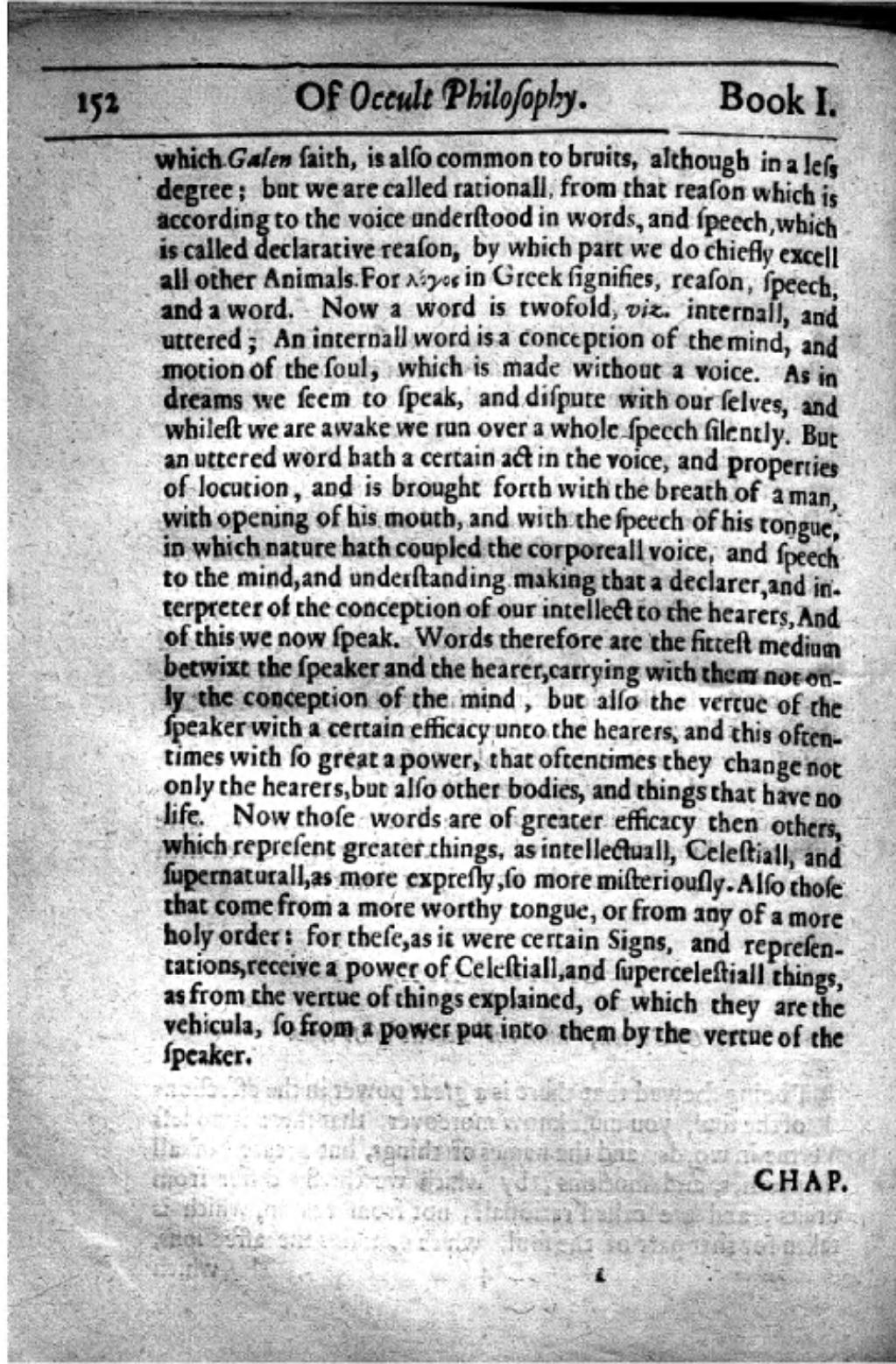common to bruits, although in a less degree; but we are called rationall, from that reason which is according to the voice understood in words, and speech, which is called declarative reason, by which part we do chiefly excell all other Animals. For λόγος in Greek signifies, reason, speech, and a word. Now a word is twofold, viz. internall, and uttered; An internall word is a conception of the mind, and motion of the soul, which is made without a voice. As in dreams we seem to speak, and dispute with our selves, and whilest we are awake we run over a whole speech silently. But an uttered word hath a certain act in the voice, and properties of locution, and is brought forth with the breath of a man, with opening of his mouth, and with the speech of his tongue, in which nature hath coupled the corporeall voice, and speech to the mind, and understanding, making that a declarer, and interpreter of the conception of our intellect to the hearers, And of this we now speak. Words therefore are the fittest medium betwixt the speaker and the hearer, carrying with them not only the conception of the mind, but also the vertue of the speaker with a certain efficacy unto the hearers, and this oftentimes with so great a power, that oftentimes they change not only the hearers, but also other bodies, and things that have no life. Now those words are of greater efficacy then others, which represent greater things, as intellectuall, Celestiall, and supernaturall, as more expressly, so more misteriously. Also those that come from a more worthy tongue, or from any of a more holy order; for these, as it were certain Signs, and representations, receive a power of Celestiall, and supercelestiall things, as from the vertue of things explained, of which they are the vehicula, so from a power put into them by the vertue of the speaker.
Page:Three Books of Occult Philosophy (De Occulta Philosophia) (1651).djvu/179
Appearance
This page needs to be proofread.

